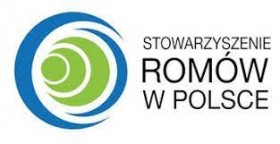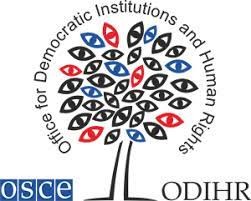
I destrùkcia e Evropage Romenqi and-o KL Auschwitz. Dromarno lil vaś o vizitórǎ. – wersja przewodnika w języku romskim już dostępna
I destrùkcia e Evropage Romenqi and-o KL Auschwitz. Dromarno lil vaś o vizitórǎ. (Zagłada europejskich Romów w KL Auschwitz. Przewodnik dla odwiedzających).
Publikację w języku romskim można nabyć w księgarni Państwowego Muzeum KL Auschwitz-Birkenau, w siedzibie Stowarzyszenia Romów w Polsce, ul. Berka Joselewicza 5, 32-600 Oświęcim, a także zamówić online pod adresem internetowym: stowarzyszenie@romowie.net
Przewodnik dla odwiedzających Miejsce Pamięci i Muzeum Auschwitz-Birkenau, poświęcony jest historii romskich więźniów obozu KL Auschwitz. Zawiera bogato ilustrowane materiały fotograficzne, opisy miejsc, wspomnienia i relację Romów a także uwzględnia najnowsze odkrycia naukowe dotyczące zagłady Romów. Przewodnik jest dostępny w językach: polskim, angielskim, niemieckim oraz romskim.
Tłumaczenie na język romski zostało zrealizowane dzięki wsparciu finansowemu Biura Instytucji Demokratycznych i Praw Człowieka (ODIHR).
I destrùkcia e Evropage Romenqi and-o KL Auschwitz. Dromarno lil vaś o vizitórǎ. - a version of the guide in the Romani language is now available
I destrùkcia e Evropage Romenqi and-o KL Auschwitz. Dromarno lil vaś o vizitórǎ. (The Extermination of European Roma in KL Auschwitz. A Visitor's Guide).
The publication in the Roma language can be purchased at the bookstore of the Auschwitz-Birkenau State Museum, at the seat of the Roma Association in Poland, ul. Berka Joselewicza 5, 32-600 Oświęcim, and also order online at the Internet address: stowarzyszenie@romowie.net.
A guide for visitors to the Auschwitz-Birkenau Memorial and Museum is devoted to the history of the Roma prisoners of KL Auschwitz. It contains richly illustrated photographic materials, descriptions of places, memories and accounts of the Roma, and also takes into account the latest scientific discoveries about the extermination of the Roma. The guide is available in Polish, English, German and Romani.
The translation into Romani was made thanks to the financial support of The Office for Democratic Institutions and Human Rights (ODIHR).


